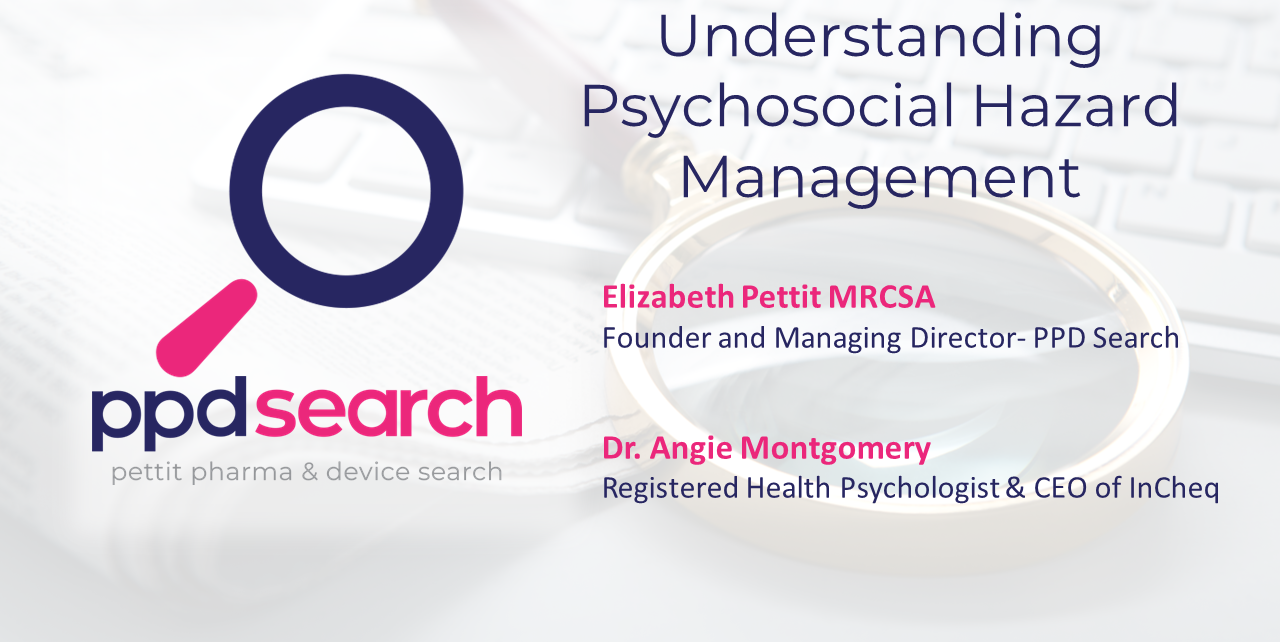The Art of Approaching Passive Candidates
Published on May 23, 2024
Written / Hosted by: Elizabeth Pettit
The success of the Digital Health, MedTech, Healthcare, and Pharmaceutical industries hinges on attracting and retaining the best minds. Groundbreaking research, the development of life-saving treatments, and the creation of cutting-edge technologies, medicines & medical devices all depend on a skilled and passionate workforce.
Due to the highly specialised nature of these sectors, companies in Australia and New Zealand face unique challenges in finding top talent. Sourcing candidates for roles, including executive search, in this area requires a strategic and nuanced approach, and this is where effective talent acquisition strategies, like engaging passive candidates, come into play.
The Power of Passive Candidates
A significant proportion of the workforce in high-skill industries consists of passive candidates—those who are not actively seeking new job opportunities but are open to compelling offers. According to a LinkedIn Global Talent Trends report, passive candidates represent about 70% of the global workforce. Engaging these candidates effectively is crucial, as they often include the most qualified and experienced professionals in their fields.
These candidates tend to carefully consider their options before making a move, ensuring that the new role is a significant improvement over their current situation. This often results in better alignment with the new company’s culture and goals, leading to longer tenure and greater mutual satisfaction.
Why Focus on Passive Candidates?
The specialised nature of the Digital Health, MedTech, Healthcare, and Pharmaceutical sectors means that the expertise required is often specific and advanced, and active job seekers may not always meet the unique skill sets required for cutting-edge projects and roles. Passive candidates, however, often possess the desired competencies and experience but may require more persuasion to consider a change.
Passive candidates are often those who have reached a level of comfort and competence in their current roles, which typically translates into high qualifications and valuable experience. They are usually well-integrated within their current organisations and are achieving their career objectives, which means they are not looking actively for change. This level of contentment and achievement makes them highly desirable prospects, as they bring proven skills and stability.
How to Recruit Passive Candidates: Effective Engagement Strategies
Approaching passive candidates requires a carefully nuanced strategy. Here are some of the key considerations and steps that we recommend:
Research & Personalisation
Understanding the candidate's current role and the industry they are in is essential. This information allows for a tailored approach that addresses the candidate’s potential professional desires and how your opportunity might align with their career trajectory.
Acknowledging their background and outlining clear opportunities for further growth or impact within your organisation to make your offer particularly compelling, is necessary.
Building Relationships
Successful engagement with passive candidates often depends on establishing trust and rapport over time. Regular communication that offers value and insight into the industry can position your organisation as an attractive potential employer.
Keep in touch through professional networks, regular updates about developments in the industry, and invitations to industry events to help build a rapport and keep your company top of mind.
Highlighting Opportunities for Impact
Candidates in healthcare are often driven by the desire to make a difference. Highlight how your role offers the potential to impact patient care, innovation, and the advancement of medical technology & drug development.
Emphasise the direct link between their work and its outcomes, such as improving patient diagnostics, developing ground-breaking therapies, or enhancing healthcare delivery systems. Demonstrate through examples or case studies how previous employees have made tangible impacts, reinforcing the meaningful nature of the work in your organisation.
Overcoming Internal Recruitment Challenges with External Expertise
If you have, or are part of, an internal recruitment and HR team, the pressure to deliver within these high-stakes industries can be overwhelming. Limited resources, the high cost of hiring mistakes, and the rapid pace of technological advancements add layers of complexity to the recruitment process.
This is where specialised healthcare recruitment agencies add value:
Expertise & Networks
Executive Search & recruitment firms specialising in the Digital Health, MedTech, Healthcare, and Pharmaceutical sectors offer a distinct advantage due to their extensive expertise and vast networks within these highly specialised fields.
They have a thorough understanding of the market's intricacies and trends, enabling them to be aware of the evolving demands of the industry, such as emerging skill sets, regulatory changes, and technological advancements that could influence hiring needs.
Extended Reach
Recruitment professionals have tools and techniques at their disposal to discreetly reach out to passive candidates who may not be accessible through conventional channels or job boards.
They may already have or can establish meaningful connections with these passive candidates, adopting a personalised approach that not only expands the candidate pool but also ensures a higher likelihood of engaging top-tier talent who are genuinely interested in exploring career advancements within your organisation.
Strategic Partnership
Working with a specialist healthcare recruitment agency can give you access to strategic advice on crafting appealing employer value propositions and navigating the complexities of the employment market in these industries.
Talent advisors in healthcare recruitment agencies know exactly what top candidates in the industry value most in potential employers, from innovative project involvement to benefits and work-life balance. They also offer insights into competitive salary benchmarks and other compensation strategies that can make your offer more attractive within the labour market.
Let the Numbers Do the Talking with PPD Search
Since 2006, PPD Search has placed over 4,000 people in permanent and contract positions in Digital Health, MedTech, Healthcare, and Pharmaceutical companies across Australia and New Zealand. Scoring 97% in our client satisfaction survey, we are confident that we can help you find and place the best candidates for whatever positions you need filled across all job families and our search offering deploys a technology platform based on scientific, evidence-based, objective assessment.
As one of the top Digital Health, MedTech, Healthcare, and Pharmaceutical search and recruitment agencies in Australia, we leverage years of expertise to redefine the landscape of talent acquisition & retention strategies. Our commitment goes beyond traditional methodologies, as we embrace cutting-edge approaches and a technology platform designed to propel our clients toward hiring talent to meet strategic imperatives for critical revenue growth.
If you’d like to learn more about how we can help you source the best passive candidates in Australia and New Zealand,
get in touch with us today.
From our blog
View our blogs and webinar recordings for insights into recruitment in the healthcare industry, company culture and to hear from senior leaders in the healthcare industry on what they are doing in their organisations, along with tips on landing your dream job.






